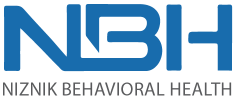National HIV/AIDS Awareness Day
Though September is National Recovery Month, taking the time to recognize the substance abuse and recovery-related observation days within the month is equally as important. Last week we recognized Suicide Prevention Week to combat stigmas and misinformation regarding suicide rates; today, we focus on raising awareness about HIV/AIDS within the recovery community in observance of National HIV/AIDS Awareness Day.
Debunking HIV/AIDS Myths
Harmful stigmas and stereotypes surround both the addiction recovery community and the community of people living with HIV and AIDS. Both populations suffer from misconceptions, moral judgments, and shaming due to misinformation. Spreading awareness about HIV/AIDS and how it relates to addiction and addiction recovery can help- here are the facts!
The human immunodeficiency virus damages the immune system by attacking cells responsible for defending the body against disease.
While it is currently not curable, medical advances have greatly extended the life expectancy of people living with HIV/AIDS. Proper care and adherence to a medical maintenance regimen reduces the risk of transmission to others and can lead to remission. A potential vaccine against the virus is also in development.
HIV can only be transmitted through semen, vaginal fluids, blood, and breast milk.
It is not transferred through kissing, sharing of utensils, or public restrooms. The virus is not an airborne pathogen, and therefore is not spread through sneezing or coughing.
Needle sharing increases the risk of HIV infection.
Any form of needle sharing may expose you to the virus, even if the syringe is not used to inject substances directly into the bloodstream. Washing or cleaning needles DOES NOT guarantee safe use.
Substance abuse can further compromise one’s immune system, compounding pre-existing health conditions such as HIV/AIDS and Hepatitis C, which can also be transferred via needle sharing. Seeking addiction recovery treatment and leading a clean and sober life reduces the risk of HIV infection. For people living with HIV/AIDS, sobriety allows the body to heal and strengthens the immune system’s resilience.
Protect yourself and others:
- Use protection during any and all sexual encounters
- Get tested regularly
- Do not share needles, even if cleaned

